Events

Ovoo Cultural Festival
Held on the 17th day of the eighth lunar month every year since 1998, the Sixth Ovoo Cultural Festival opened in Baotou, Inner Mongolia autonomous region, on Sept 17, 2017. Artistic performances and sacrificial ceremonies honoring Genghis Khan were staged during the event.
Ovoo (oboo in Mongolian) are sacred stone heaps used as shrines or altars. Ovoo mainly serve as sites for worshipping ceremonies, but are also thought to bring a good harvest and good health to an individual.
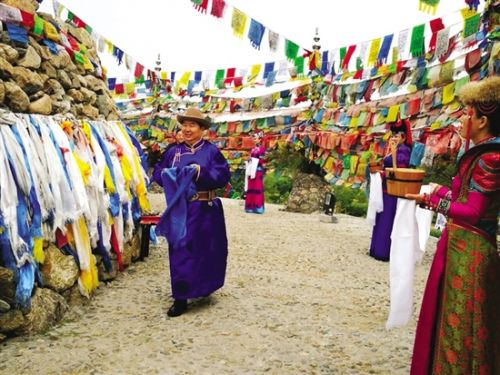
The Sixth Ovoo Cultural Festival begins in Baotou, Inner Mongolia autonomous region, on Sept 17. [Photo/baotounews.com.cn]
Fire Worship Festival
The 23rd day of the 12th lunar month is Fire Day in Mongolian culture. The Fire Worship Festival held that day originated in the traditional fire worship practices of ancient Mongolians. Fire is thought to represent purity and to symbolize gods. It is one of the oldest and most important sacrificial rites for Mongolian people and involves the use of ceremonial ovoo.
Hosted by Baotou Ethnic Affairs Commission, this year's Fire Worship Festival was held at Saihantala Grassland on Jan 21. With the support of the municipal government, the city has held ovoo worship events and fire worship activities for 19 years.
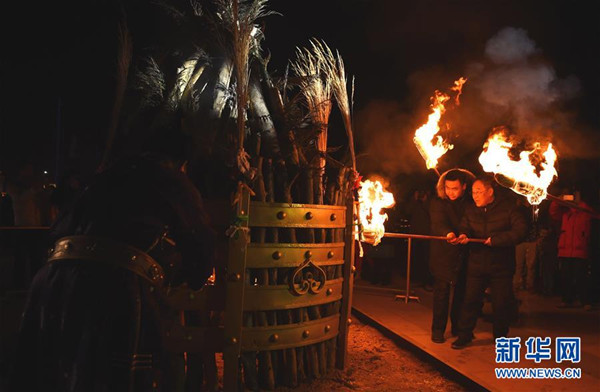
Two people ignite a fire as part of sacrificial rites at Saihantala Grassland in Baotou, Inner Mongolia autonomous region, on Jan 21. [Photo/Xinhua]
China Nomadic Culture Tourism Festival
The China Nomadic Culture Tourism Festival features at its center the nomadic township Darhan Muminggan Joint Banner. In celebration of the nomadic culture and specific resources of Darhan Muminggan Joint Banner, the festival is held over 80 days every year starting in the middle of July.
The fifth festival opened this year on July 22. Running until Oct 12, the festival features 113 events and activities in four categories — culture, sports, tourism and trade.
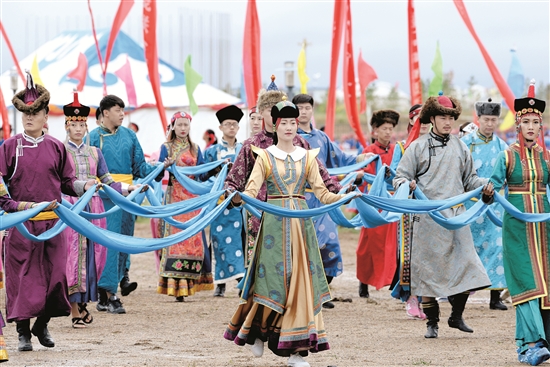
The fifth China Nomadic Culture Tourism Festival opens in Darhan Muminggan Joint Banner, Baotou, on July 22. The 80-day festival will run until Oct 12. [Photo/Baotou Daily]
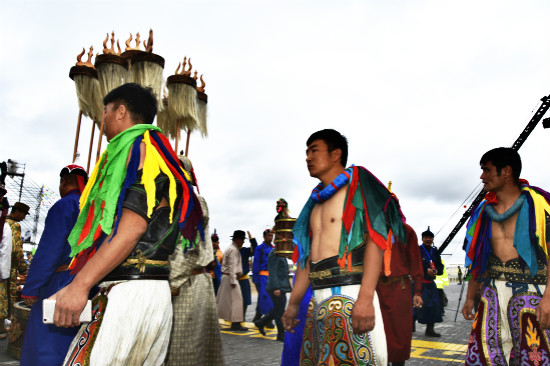
A sacrificial rite is performed at the opening ceremony of the China Nomadic Culture Tourism Festival in Baotou on July 22. [Photo/people.com.cn]
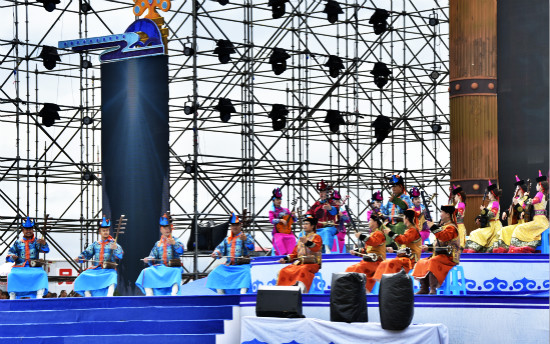
The Ulan Muqir from Darhan Muminggan Joint Banner perform at the festival opening ceremony on July 22. Ulan Muqir (literally "red burgeon" in Mongolian) refers to an art troupe. [Photo/people.com.cn]
Nadam fair
Nadam,translated from Mongolian, means "entertainments". The Nadam Fair originates from the ancient sacrificial rites of ovoo. Held annually in midsummer, the fair includes archery, horsemanship and bokh, also known as Mongolian wrestling. This year, the 28th Nadam Fair opened on July 22, the same day as the fifth China Nomadic Culture Tourism Festival.
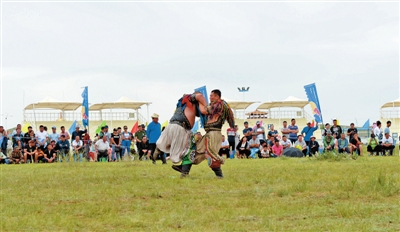
Bokh, also known as Mongolian wrestling, along with horsemanship and archery, form the basis of the competition at the Nadam Fair. [Photo/Inner Mongolia Daily]







